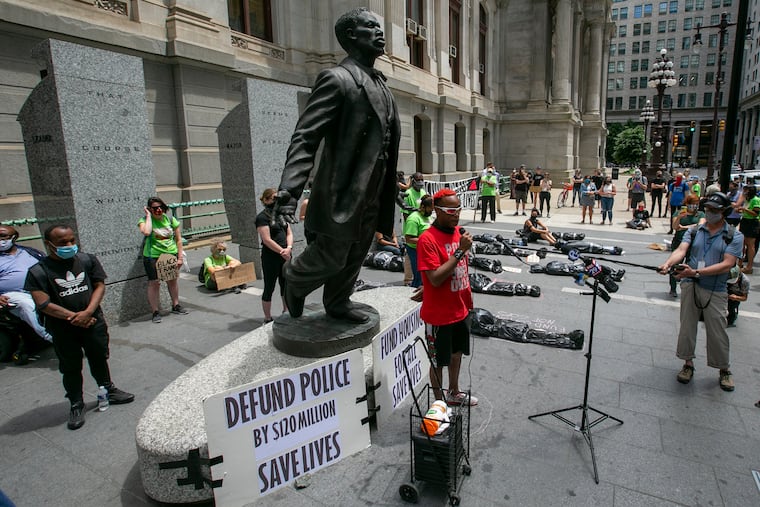Why Octavius V. Catto remains a civil rights icon in Philly | Opinion
Catto's statue has become “ground zero” for peaceful prayer and thoughtful dialogue among Philadelphians about our city’s future.

As leaders of the Octavius V. Catto Memorial Fund, we have been moved to see “A Quest For Parity,” the memorial dedicated to Catto at City Hall, become a beacon for civic reflection as our city confronts its racial challenges in the wake of George Floyd’s death.
The memorial is more than simply a tribute to an extraordinary individual; it is a symbol of an aspirational America. It has, in effect, become “ground zero” for peaceful prayer and thoughtful dialogue among Philadelphians about our city’s future. Few know the many contours of his story and the importance of understanding that Catto’s work remains unfinished.
Catto was murdered on South Street at the age of 32. Catto and his compatriots were indeed like the many young peaceful protesters today, seeking to have America live up to the founding ideals expressed in our Declaration of Independence. In fact, Catto frequently referenced the declaration in his oratory, and he spoke about how Black lives mattered and deserved the same civil rights as whites.
During his short lifetime, he witnessed many injustices against Black people, including violence, segregation in housing, the lack of decent education, and the absence of access to public accommodations. He lived and taught school in the 7th Ward, the heart of Philadelphia’s Black and immigrant communities, located between Spruce and South Streets from Seventh Street to the Schuylkill. African Americans were crowded into marginal housing and living with minimal incomes due to the lack of meaningful employment opportunities.
Nonetheless, Catto was an optimist and dedicated his life to breaking down barriers of social injustice, pushing the boundaries of social constraints, and working with other African Americans and white abolitionist and unionist leaders across the country to change forever the meaning of the United States Constitution.
Catto’s greatest legacy is his work toward the ratification of the 13th, 14th, and 15th Amendments, which reframed what it means to be an American, and laid the foundation for the work of those who came after him. Among them: Ida B. Wells, Thurgood Marshall, and Martin Luther King Jr. Historian Eric Foner calls these amendments America’s “Second Founding,” and it is these fundamental changes in America that inspired the French to give our nation the Statue of Liberty.
After the completion of Branly Cadet’s stunning Octavius V. Catto Memorial, championed for decades by Mayor Jim Kenney, the Memorial Fund introduced an educational outreach program. We partnered with cultural institutions and the Philadelphia School District’s Curriculum Office, with support from Philadelphia corporations and foundations, to train a cross section of educators to teach over 11,000 students about Catto and the meaning of his life and legacy. This initiative engaged teachers in addressing how their own perceptions on race impacted their teaching. It also focused on students’ views on race from lived experiences, and civic conversations through their study of the racial violence that ended Catto’s life. For the future, we envision an expanded educational initiative, at all levels, as we continue to seek financial support for ongoing programming.
As we think about next steps for building a stronger community in Philadelphia, it is our duty to mold articulate and vigilant citizens for our future. We must strive to enable more young people to learn about Octavius V. Catto, and how they can complete his unfinished revolution.
Carol Clark Lawrence, James B. Straw, and V. Chapman-Smith are leaders of the Octavius V. Catto Memorial Fund.